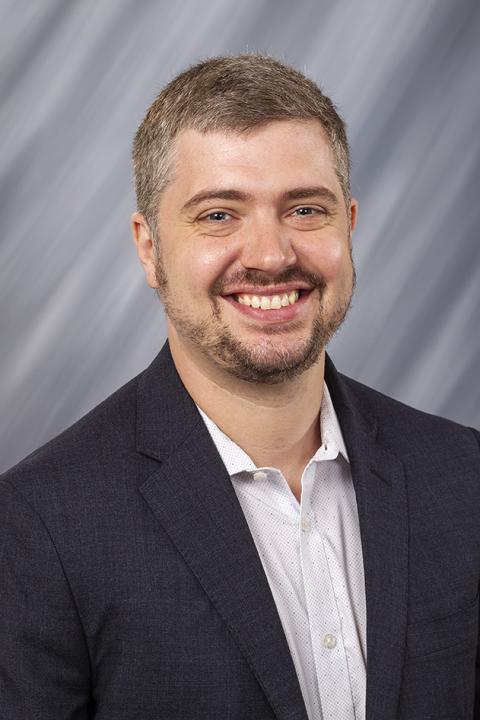Masters Program in Adapted Physical Education is Awarded $1.25M Federal Grant

Assistant Professor of Kinesiology Scott McNamara was letting his elderly dog out in the middle of the night when he received a congratulatory email—his application for a federal grant of $1.25 million to support graduate students in the University of New Hampshire’s new one-year master’s program in adapted physical education (APE) had been approved. The grant, which extends over five years with the potential for renewal, covers all the fees associated with eligible students’ full tuition, textbooks, and APE certification, as well as $9,000 per year toward living expenses.
“I was so excited I couldn’t fall back asleep, so I went to the gym around four in the morning,” recalls McNamara, who launched the APE graduate program in the fall of 2023.
When McNamara came to UNH’s College of Health and Human Services (CHHS) in 2021, he was thrilled about the opportunities to teach physical education and APE courses, and to focus on research. However, from day one, “the OSEP grant and the masters program were on my radar,” he says. While he hoped to develop the masters program and apply for the grant within a couple of years, with more than 150 applicants competing for 30 slots, he never expected to receive the grant with his first application.
The interdisciplinary APE masters program overlaps with multiple fields of study, including occupational therapy, physical therapy, social work, therapeutic recreation, health and physical education, adaptive sports, and special education, and is designed to give graduates the skills to make a wide variety of sports accessible to students with disabilities.
Whether sports are being utilized as means of health promotion, a competitive outlet, or simply an opportunity for fun and joy, all students deserve the option to safely engage in activities they find enjoyable, regardless of their disability status, according to McNamara. “Access to quality physical activity should be looked at as a civil right,” he says.
“I see the master’s program as a foundation of change,” says McNamara, whose passion for the field stemmed from growing up with a younger brother with a disability. “I’m a pretty cynical person but I truly believe that,” he adds.
“The grant has been available since the inception of APE in 1975, and I have seen both in real time and historically this blue zone around it,” explains McNamara. As trained professionals graduate and enter fields like consulting, education, and school administration, they provide wider opportunities for children to participate in adapted physical education, “there’s this trickle-down effect,” he says. “It’s like the Field of Dreams. If you build it, they will come.”
Students applying to the master’s program in adapted physical education will be automatically included in a pool for the grant that will comprehensively cover tuition and more. To learn more about this grant opportunity and the APE masters program, please contact Dr. McNamara at scott.mcnamara@unh.edu.